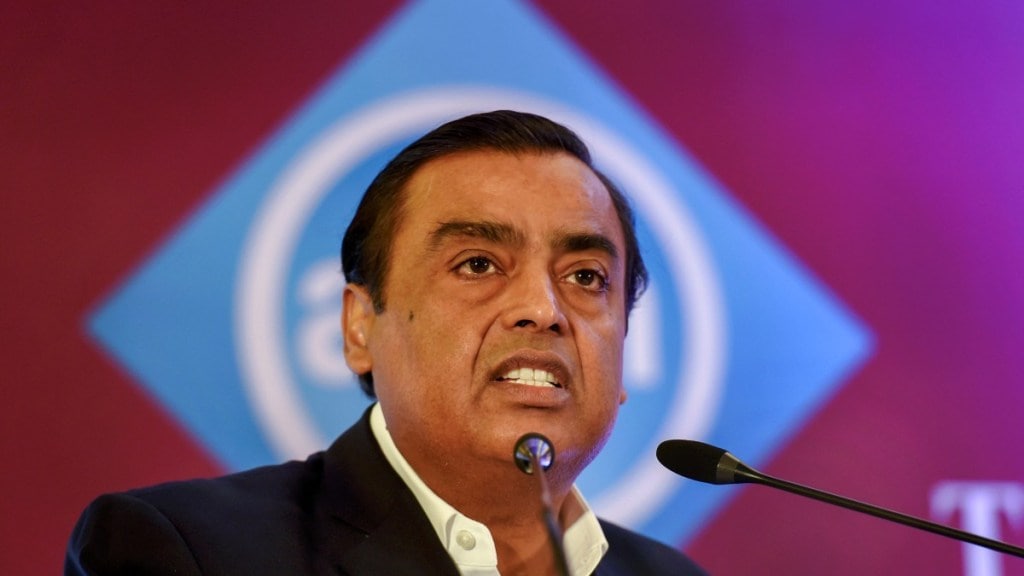Reliance Industries chairman and managing director Mukesh Ambani has a clear message for budding entrepreneurs: success comes not from chasing billions but from aiming to serve billions.
In a candid conversation with McKinsey & Company for its Leading Asia series, Ambani recalled a lesson from his late father and Reliance founder Dhirubhai Ambani: “My father used to say, if you want to start a business to be a billionaire, you are an idiot; you will never get there. But if you want to start a business to impact a billion people, then you have a good chance of success, and as a by-product, you can make a reasonable amount of money.”
Ambani said this mindset continues to shape the philosophy and operations of Reliance. The focus, he said, is always on the goal, which is creating large-scale societal impact, rather than getting distracted by hurdles. “We have a saying that if you focus on the obstacles, you will never reach your goals; but if you focus on your goal, you will overcome all the obstacles,” he said.
This clarity of purpose has helped Reliance constantly adapt and grow. “Even today, we reinvent our business every three, four, or five years in terms of what we do. What changes is our business strategy. What does not change is our North Star,” Ambani said.
Among the most transformational, and riskiest, decisions Reliance has made in recent decades was the launch of its telecom venture, Reliance Jio, in 2016. Ambani described it as the biggest risk of his career. “We have always taken big risks because, for us, scale is important,” he said.
Jio was fully funded by Reliance itself, with Ambani as the majority shareholder. At the time, there were doubts about whether the country was ready for such advanced digital infrastructure. Some analysts predicted poor returns. But Ambani was undeterred. “In the worst case, we will not earn much return. That’s okay because it’s our own money,” he told the RIL board. “But then, as Reliance, this will be the best philanthropy that we will have ever done in India because we will have digitised India, and thereby completely transformed India.”
The gamble paid off. Jio revolutionised the telecom market by offering free voice calls and extremely low-cost data, forcing competitors to slash tariffs. This led to an explosion in Internet access across the country, especially in rural and low-income regions. Today, India has over 800 million Internet users, many of whom came online for the first time thanks to Jio. That digital foundation has powered the rise of countless services in e-commerce, education, financial technology, and entertainment.
Jio now has more than 470 million subscribers and continues to lead in next-generation technologies such as 5G, AI, and cloud services.
Ambani said Reliance has built its capabilities end-to-end. “We built everything ourselves, the core, the hardware, the software,” he said, adding they used companies like Ericsson and Nokia only to validate about 20% of the infrastructure. “I also wanted to make sure our people were not too full of themselves. I said to them, ‘You have to be better than these guys.’ And we are now.”
Looking to the future, Ambani said the next challenge lies in building confidence among the next generation of Reliance leaders to innovate in an era of rapidly changing technology. He recalled that during his early years, India had to license technology from abroad and was constrained by regulations and risks. “I used to push my leaders by saying, ‘We have to be owners of technology. We must be innovators.’”
That shift is well underway. “The change now for Reliance is that we are going to be a deep-tech and advanced manufacturing company,” he said.
Ambani also reflected on the legacy he wants Reliance to build, citing his father’s vision: “Reliance is a process. It’s an institution that should last. You have to make sure that Reliance lasts beyond you and me.”
“That’s my commitment to him, that Reliance will last beyond us,” Ambani said. “In 2027, Reliance will celebrate its golden jubilee. But I want Reliance to continue to serve India and humanity even after completing 100 years. And I am confident it will,” he said.

